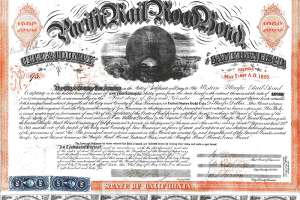Sorry I couldn’t think of a more eloquent word than that. I’ve just met too many so-called “advisors” out there that lack the knowledge, discipline, and ethics I believe clients deserve. The truth is a lot of brokers or financial advisors — or whatever their marketing groups are telling them to call themselves these days — only knowslightly more than their clients about investing, and they use this little informational advantage to sell you whatever products or services make them the most money.
So how do you tell if you’re working with someone who has a developed skill set and truly has your best interests at heart, or a dick just out to make as much money off of you as he can? Here are five ways to get a good idea:
1. They are a Product Pusher
You meet with her for the first time and within a few minutes the words “variable annuity” come out of her mouth. Be wary of financial advisors who try to push products like annuities on you without taking the time to truly understand your situation. There is at best only a very small subset of the population these insurance/investment hybrids make any sense for, and odds are it’s not you. But brokers love them because they could have you in and out of their office in under an hour and collect a fat commission that can sometimes cost as much as 8% up-front, as well as annual fees that might run 2-4% after that.
In most circumstances you are going to want to avoid working with someone who is paid on commission. They might call themselves financial advisors, but anybody who works on commission is really just a salesperson. Her interests are simply not going to be aligned with yours.
2. High Fees
Speaking of fees, one of the best pieces of advice your financial advisor can give you is to keep your investment fees low. There is nothing wrong with your advisor making money, but if his job is to help you build or preserve wealth and his fees are so high they are getting in the way of that it’s a problem. According to the 2013 Investment News Financial Performance Study of Advisory Firms, the average annual fee charged by advisors is 1.50% for $100,000 accounts and 1.39% for those with a $1,000,000 balance. If you are paying that much or more you should be looking elsewhere.
Many financial planners don’t charge a percentage on your assets and instead bill by the hour for the advice they give you, much like lawyers do. Rates are generally $150-$300 per hour, and they usually don’t earn any commissions so there is no incentive to put you in certain products. However, these fees could add up quickly if you are billed more than a few hours each year.
3. Suitability vs. Fiduciary Standard
This is a little-known problem that has recently become a prime target of President Obama. Ask your advisor which standard they are bound to. Brokers are only required to meet the “suitability” standard. This simply means the investment or product they are selling you must be reasonably appropriate given your objectives and financial situation. The duty of a broker is to the broker-dealer he works for, not necessarily to you.
A true investment advisor, on the other hand, is bound to the “fiduciary” standard and as such is required by law to put the interests of his clients first — above his own interests and the interests of his company. He must try to avoid conflicts of interest and disclose any potential conflicts to his clients. He must also seek the best execution for trades, meaning the best combination of low trading costs, good price, and timely and efficient execution. In short, he must try to do what is best for you.
Which standard would you rather have your advisor bound to?
4. Background
Not every art history major can land one of those precious few jobs as a curator. Eventually they need to find some kind of work to pay the bills. It’s not all that hard to become a financial advisor and the pay can be quite attractive. So they study for a few weeks and pass the Series 7 and 66 exams to become licensed to deal securities — it only requires a basic level of competency — and put themselves out there as an expert to prospective clients. That’s not to say they might not eventually become experts after years of study and experience, I’m just pointing out that it’s not a prerequisite.
Don’t be afraid to ask what she studied in college — or if she went at all. While a degree in finance or economics would be ideal, other disciplines like psychology have value in the industry as well. If they have a degree in music, fashion design, or Icelandic studies, however, that might be cause for concern.
Also take a look at the letters listed after her name on her business card or email signature. They indicate various certifications, charters, or accreditations she might have earned. There are many letters out there, though, and they are far from equal. If your financial planner has the letters CFP (Certified Financial Planner®) after her name, that’s a good sign. If she does more than just advise and actually manages your investments for you, ideally you’d like to see the letters CFA (Chartered Financial Analyst®). The CFA credential has become the most respected and recognized investment designation in the world, and it is very difficult to earn. If she don’t have these letters, ask her if she is pursuing them. If she isn’t you have to question her commitment to the craft.
5. The “ick” Factor
What kind of vibe do you get from your advisor? Do you really feel like you can trust him? Is he aggressive and pushy; does he bully you into decisions? Do you leave his office feeling good, or feeling like you got hoodwinked? Would you set your best friend up on a date with him? In short, is he a dick? If he is, it’s time for a change.




